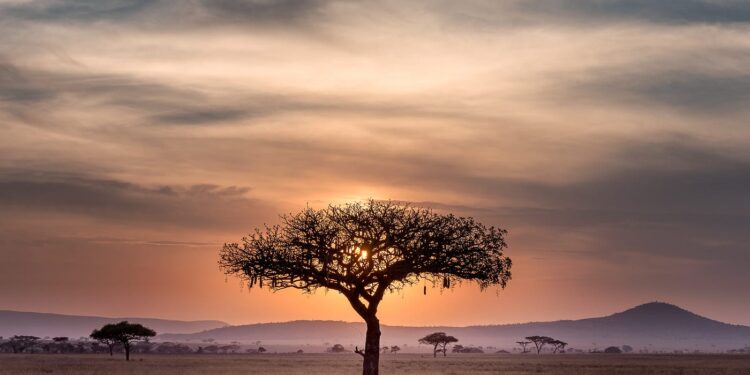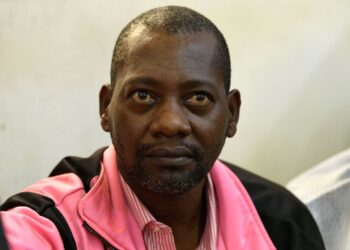In the digital era, it’s obvious that social media has revolutionized how people interact, share information, and engage with cultural stories. But alongside its benefits, social media has also become a powerful medium for the propagation of myths, misinformation, and detrimental practices. A good example of such concern is the proliferation of dangerous ritual myths and false narratives that instill unhealthy cultural or unrealistic supernatural thoughts, which ultimately translate to real-life impacts in the shape of violence, exploitation, or mental anguish, and killings. The concern is specifically with regard to the upsurge of young people on social media who are always waxing lyrical about money rituals, stressing the achievement of riches by all possible means, and even promoting the use of human beings for rituals. Such messages are misleading young generations and have severe implications for society.
The majority of these youths, who are hungry for wealth, are attracted to such deceptive ideologies, sometimes using illegal and unethical practices. Studies have shown that false news spreads six times faster than correct news on social media, and it becomes difficult for genuine knowledge to counter such harmful stories. [1] The governments and religious bodies have been worried about this trend and event since it is noted that genuine wealth comes from moral labor and God’s provision, and not by chasing paranormal shortcuts.
The Notion of Ritual Myths
The notion of ritual myths has existed for centuries, typically entrenched in traditional and cultural thoughts. These myths state that supernatural forces can grant wealth, success, or protection using sacrificial rituals, secret ceremonies, or occult rituals. These myths persist in the majority of societies due to a combination of folklore, fear, and misinformation, typically manipulated by power-seekers or quick money-seekers.
Historically, the majority of societies have possessed and chosen ritual myths regarding wealth and security. In certain African and South American cultures, for instance, individuals who sought wealth were told that they could guarantee success by offering human sacrifices. [2] Even sociologists have documented cases where such beliefs led to gruesome consequences, including ritual murder and exploitation of vulnerable individuals. [3] The influence of such myths has been further boosted by modern social media platforms, on which unsubstantiated news and exaggerated accounts spread rapidly.
The Pew Research Center study found that 45% of the adults in some regions believe supernatural intervention for achieving economic success exists, an affirmation of the refusal to abandon the myths. [4] This is especially concerning for economically deprived neighborhoods, where despair can lead some to seek conventional means of getting rich. Social media is a driver, fueling such myths via viral posts, endorsements, money-motivated lectures, and even so-called online “ritual experts” who dupe followers into doing hazardous or scam-related activities.
The True Source of Wealth: Ethical Perspectives
Ethical teachings in every major religion emphasize the fact that wealth and prosperity should be a product of legal and ethical efforts. Islam and Christianity, among others, do not believe in the concept that money rituals or unethical methods can ensure financial prosperity. Instead, they encourage hard work, honesty, and ethical conduct as the rightful path to prosperity.
- An Islamic Perspective:
Wealth in Islam is a blessing of Allah but must be gained ethically. Almighty Allah, mentioned in the Quran, teaches that human effort and the mercy of Allah yield sustenance and prosperity. Surah Al-Jumu’ah 62:10 states, “And when the prayer has been concluded, disperse within the land and seek from the bounty of Allah, and remember Allah often that you may succeed.” [5]…
This verse highlights that economic prosperity involves human effort in the form of righteous and lawful work. Islam also forbids unjust gains, or illegal profits, and stresses halal (lawful) economic activities. In this course, the Quran explicitly forbids interest (riba) in Surah Al-Baqarah 2:275: “Allah has permitted trade and has forbidden interest.” Muslim scholars have also extensively debated the moral acquisition of riches. Al-Imam Al-Ghazali, in Ihya Ulum al-Din, warns against deceptive economic behavior and superstitious reliance, where he stands arguing that true wealth derives from hard work. [6] He states that riches must be utilized to serve humanity and bring the common good rather than for egocentric purposes alone. Imam Abu Hanifa also opposed the acquirement of wealth by occult or unethical means and promoted lawful trade and business subject to consent and justice. [7]
Additionally, Ibn Khaldun, in his Muqaddimah, addresses the subject of economic justice, positing that economic practices grounded in ethics guarantee stability and long-term prosperity for society. He gives the caveat that economies founded on exploitation or superstition tend to collapse, advocating rational economic policy guided by moral norms. His stance suggests that economic justice is essential to stable economies. [8]
- A Christian Perspective
Ideally, Christianity teaches that wealth should be gained through hard work and good behavior. The teaching in the Christian book (Bible) is that achievement is not merely an easy product of God’s favor or money rituals but instead is linked with hard work and good behavior. Deuteronomy 8:18 states, “But remember the Lord your God, for it is he who gives you the ability to produce wealth and so confirms his covenant, which he swore to your ancestors, as it is today.” [9] The verse attests that earthly prosperity has its origin in human effort and moral conduct, in line with the overall Christian doctrine of moral stewardship. Proverbs 10:4 also underscores, “Lazy hands make for poverty, but diligent hands bring wealth.” [10]
This teaching reinforces the doctrine that success is a product of good and hard work rather than the acquisition of wealth through superstitious or unrighteous methods. Ecclesiastes 5:19 shows a general description of wealth: “Moreover, when God gives someone wealth and possessions, and the ability to enjoy them, to accept their lot and be happy in their toil, this is a gift of God.” [11] Christian theologians have long discussed at length the moral dimensions of wealth. St. Augustine, in The City of God, emphasizes that riches must be used for the common good over personal greed. [12] In his opinion, true wealth lies in righteousness and a good life and not in hoarding and money rituals.
Also, Thomas Aquinas, in Summa Theologica, theorizes that riches should be used for the ends of charity and that economic operations have to be grounded on justice and equity. [13] He deplores acts of exploitation of others for gain and upholds the moral character, good, and greatness of labor being the cause of financial prosperity.
Rejection of Ritual Killings and Unethical Practices
Explicitly, Islam and Christianity both condemn very strongly ritual murders and other immoral actions as a means of acquiring wealth or favor from supernatural powers. Islam and Christianity both believe in the sanctity of human life and the necessity of moral conduct in all economic and social relationships. In Islam, the Quran strictly forbids murder and unjustified killings. Surah Al-Ma’idah 5:32 states, “Whoever kills a person [unjustly], it is as if he has killed all mankind.” [14] The verse sternly states that the murder of a human being for any unjust cause, including ritual murders for economic reasons, is prohibited. Islamic law believes that wealth must be pursued through legitimate labor and never through any form of harm to human life.
Similarly, Christianity strictly prohibits ritual murders. The Christian book, the Bible in Exodus 20:13, instructs, “You shall not murder.” [15] The practice of human sacrifice has been denounced in various instances, such as in Deuteronomy 12:31: “You must not worship the Lord your God in their way, because in worshiping their gods, they do all kinds of detestable things the Lord hates.” They even offer their sons and daughters as sacrifices to their gods in the fire.” [16] Both religious traditions strongly instruct that wealth must never be sought through violence, exploitation, or immoral means. Instead, they advocate justice, legal work, and social responsibility as the means to wealth.
As digital platforms have grown in popularity, misinformation and harmful myths regarding the ritualistic accumulation of wealth have spread on social media. Most online platforms propagate superstitious ideologies that one can attain financial success through occult activities or ritualistic murders. This online disinformation has had offline effects, including increased cases of ritual violence in some societies. [17] Religious thinkers and moral authorities have condemned the employment of social media in disseminating these perilous ideologies. Islam and Christianity teach the pursuit of knowledge through morally correct and genuine channels and not being deceived by deceptive online information. Initiatives against such myths include education initiatives, legislation, and religious campaigns of consciousness to debunk myths and promote lawful and ethical ways of accumulating wealth. Though disinformation in the age of technology is a dynamic aspect, religious societies and policymakers will have to move in unison to hold in check the spread of harmful narratives that beget violence and illegitimate economic practices.
In essence, both Islamic and Christian scholars reject the notion that supernatural rituals, deception, ritual killings, or economic exploitation are permissible ways of accumulating wealth. Instead, they literally promote a moral economy based on hard work, honesty, and social justice. Scholars in both religions, such as Imam Al-Ghazali, Ibn Khaldun, St. Augustine, and Thomas Aquinas, all agree that true wealth, material and spiritual, stems from moral conduct and fair economic practice. These are the religious viewpoints mentioned, which act as the guiding principles for individuals and society, where it emphasizes that one should acquire wealth in accordance with moral and ethical standards.
The Consequences of Believing in Ritual Myths
Believing in ritual myths has important effects on the people and society as a whole. The myths trigger fear-ridden thinking, demotivate rationality during decision-making, and, most of the time, end in destructive actions. Misinformation by social media sets ablaze risky ideologies, which ultimately contribute to psychological trauma, crime, and social moral downgrading. Being aware of their implications, we can devise appropriate measures to contain their spread and minimize their effects.
- Criminal Activities and Violence:
The majority of ritual myths encourage individuals to take part in unlawful and violent rituals, such as human sacrifice, deception, and abuse. Evidence has revealed that the ritual acquiring of wealth beliefs has resulted in ritual murders in some parts of the globe. The United Nations Office on Drugs and Crime (UNODC) has documented instances where ritual murders have been linked with organized crime and deceptive religious practice. The police forces attribute such offenses to superstition caused by cyber lies, which is supported by the study made by Igwe that shows the connection between an individual believing in ritual wealth and criminal behavior among certain regions in Africa. [18]
- Economic Decline and Loss of Productivity:
Faith in supernatural paths to wealth creation distracts individuals from engaging in legitimate business and professional pursuits, hence hindering innovation and economic growth. Such reliance on ritual myths encourages dependence on unproductive endeavors, leading to poverty and stagnation. [19] In this regard, Collier and Gunning note how such irrational beliefs compromise individual and societal financial security by discouraging engagement in productive activities. Banerjee and Duflo also explain how magical and ritual wealth creation dissuades economic mobility and rational decision-making [20]. Therefore, people who seek wealth through supernatural means avoid financial planning, investment, and entrepreneurship and instead become entrenched in debt cycles and vulnerable to fraud. Not only is individual accomplishment limited by this mindset, but overall economic development is weakened.
- Psychological and Emotional Distress:
Meanwhile, believing in ritual myths can lead to anxiety, paranoia, and irrational fears, especially among young and impressionable individuals. In fact, exposure to misinformation through social media can create unnecessary panic and social problems, leading to deteriorating mental health and even depression. In accordance with van Prooijen and Douglas’s studies, conspiracy theories and irrational beliefs contribute to increased feelings of powerlessness and psychological distress. [21] Similarly, Douglas, Sutton, and Cichocka found that exposure to false information through digital platforms significantly affects individuals’ cognitive stability and emotional well-being. [22]
Strategies to Combat the Spread of Superstitious Ritual Myths
In this era, the global popularity of ritual myths poses deep threats to society, leading to violence, economic stagnation, and communication breakdown. They need targeted intervention to cut down their grip. A combination of education, religious outreach, control of social media, and implementation of the law may de-emphasize the harmful effects of these superstitions. Through promoting moral and ethical economic practice, societies can overcome the adverse impacts of these myths and usher in sustainable development.
- Digital Literacy and Public Awareness Campaigns:
Governments and non-governmental organizations must implement education programs to teach people how to differentiate between correct information and misinformation. Public awareness campaigns must publicly reveal the dangers of ritual myths and emphasize the importance of correct work and business. Research has shown that digital literacy programs have the ability to halt the domination of public opinion by misinformation. [23]
- Religious Institutions and Community Engagement:
Faith-based organizations have a significant role in debunking ritual myths. Religious leaders should reinforce the teachings that wealth is attained through ethical labor, not supernatural rituals. Community leaders should also engage in grassroots education programs to correct these harmful beliefs. Apparently, studies on Pentecostalism and religious bodies in Africa highlighted the role of religious institutions in combating superstition and promoting economic empowerment. Theological studies also emphasize the importance of ethical religious teachings in dispelling myths about supernatural wealth acquisition. [24]
- Strengthening Social Media Regulations:
Social media platforms must implement tougher policies to contain the spread of misinformation. Artificial intelligence-based content moderation, fact-checking activities, and speedy removal of offensive content are important steps to contain the spread of ritual myths on social media. Researchers state active regulation of misinformation can prevent the rapid spread of dangerous ideas. Research suggests social media interventions like flagging as false can lower belief in misinformation significantly.
- Legal Enforcement Against Fraudulent Ritual Practices:
The government must enhance enforcement of the laws that criminalize the promotion and participation in money rituals. Any person or entity exploiting individuals by propagating these myths must be brought to book. Firm enforcement will also deter and play a part in decreasing ritual myth dissemination in society. Legal literature indicates that robust policy interventions for ritual-based offenses can go a long way in decreasing the incidences of these types of crimes. UNODC stresses the need for global cooperation in confronting superstitious violence and ritual fraudulent activities. [25]
Hence, the ritual myth ends up producing cataclysmic consequences that affect individuals, society, and society in general. The myths not only distort reality but also lead to criminality, such as brutal killings, social instability, and economic decline. The adherents of the myths end up missing real opportunities for success and are instead caught in the web of deceit, brutality, and mental unrest. The spread of these beliefs through social media increases their ill effects, and it is even more important to counter them through education and regulation. Through the implementation of evidence-based strategies such as digital literacy campaigns, religious engagement, regulation of social media, and legal enforcement, societies can mitigate the ill effects of ritual myths and make economic development ethical.
Conclusion
Establishing faith in ritual myths has grave adverse consequences on the individual and society. The ritual myths present a distorted perception of reality, which results in many calamities such as anxiety and fear-oriented mindsets, psychological trauma, brutal killings, and violent behavior. Their impact is intensified by the dissemination of misinformation through social media, resulting in violence, economic stagnation, and moral decadence. Believers in such myths are prone to falling into cycles of exploitation and criminality while disregarding legitimate channels of success and stability.
Therefore, it is important to note that no religion promotes or offers money rituals or murdering human beings for money. All the religions of the world promote hard work, honesty, and ethical means of acquiring wealth. Money is acquired only through legal and legitimate sources such as education, business, and career development. It requires a multi-faceted approach to address this issue. However, digital literacy programs can empower citizens to critically evaluate information and act against misinformation. Religious and community leaders play crucial roles in destroying myths and supporting moral and economic ethics. Implementing stricter social media laws can keep the rapid diffusion of harmful ideologies at bay, while implementing legislation ensures violent and fake ritual practices are sanctioned. Last but not least, through a collaborative endeavor by governments, educators, religious organizations, and society in general, is it possible to break the grip of ritual myths. However, education, reason, and moral and economic advancement can enable communities to overcome the grip of superstition and bring about a safer, better-educated, and more enlightened society.
ــــــــــــــــــــــــــــــــ
[1] Soroush Vosoughi, Deb Roy, and Sinan Aral, “The Spread of True and False News Online,” Science 359, no. 6380 (2018): 1146-1151.
[2] Stephen Ellis and Gerrie ter Haar, Worlds of Power: Religious Thought and Political Practice in Africa (Oxford: Oxford University Press, 2004), 45-67.
[3] John S. Mbiti, African Religions and Philosophy, 2nd ed. (Portsmouth, NH: Heinemann, 1990), 89-102.
[4] Pew Research Center, “Global Religious Futures: Superstitions and Belief in the Supernatural,” Pew Research Report, April 2019, www.pewresearch.org.
[5] The Quran, Surah Al-Jumu’ah 62:10, The Noble Qur’an: English Translation of the Meanings and Commentary (Madinah: King Fahd Complex for the Printing of the Holy Qur’an, 1999).
[6] Abu Hamid Al-Ghazali, Ihya Ulum al-Din (Cairo: Dar al-Taqwa, 2004), vol. 2, 304-310.
[7] Imam Abu Hanifa, Teachings on Lawful Trade and Business Transactions (Beirut: Dar al-Kutub al-Ilmiyyah, 2011), 67-89.
[8] Ibn Khaldun, Muqaddimah: An Introduction to History, trans. Franz Rosenthal, abridged by N. J. Dawood (Princeton, NJ: Princeton University Press, 2005), 153-167.
[9] The Bible, Deuteronomy 8:18, New International Version (Grand Rapids, MI: Zondervan, 2011).
[10] The Bible, Proverbs 10:4, New International Version (Grand Rapids, MI: Zondervan, 2011).
[11] The Bible, Ecclesiastes 5:19, New International Version (Grand Rapids, MI: Zondervan, 2011).
[12] Augustine of Hippo, The City of God, trans. Henry Bettenson (London: Penguin Classics, 2003), Book 19, Chapter 24.
[13] Thomas Aquinas, Summa Theologica, trans. Fathers of the English Dominican Province (New York: Benziger Brothers, 1947), II-II, q. 77, art. 4.
[14] The Quran, Surah Al-Ma’idah 5:32, The Noble Qur’an: English Translation of the Meanings and Commentary (Madinah: King Fahd Complex for the Printing of the Holy Qur’an, 1999).
[15] The Bible, Exodus 20:13, New International Version (Grand Rapids, MI: Zondervan, 2011).
[16] The Bible, Deuteronomy 12:31, New International Version (Grand Rapids, MI: Zondervan, 2011).
[17] United Nations Office on Drugs and Crime (UNODC). Reports on Ritual Killings. Vienna: UNODC, 2020.
[18] Leo Igwe, “Ritual Killings and the Criminalization of Superstition in Africa,” African Journal of Criminology 15, no. 2 (2021): 45-58.
[19] Paul Collier and Jan Willem Gunning, “Why Has Africa Grown Slowly?” The Journal of Economic Perspectives 13, no. 3 (1999): 3-22.
[20] Abhijit V. Banerjee and Esther Duflo, Poor Economics: A Radical Rethinking of the Way to Fight Global Poverty (New York: PublicAffairs, 2011), 120-134.
[21] Jan-Willem van Prooijen and Karen M. Douglas, “Conspiracy Theories as Part of History: The Role of Societal Crisis Situations,” Memory Studies 10, no. 3 (2017): 323-333.
[22] Karen M. Douglas, Robbie M. Sutton, and Aleksandra Cichocka, “The Psychology of Conspiracy Theories,” Current Directions in Psychological Science 26, no. 6 (2017): 538-542.
[23] UNESCO. Education and Counteracting the Spread of False Ritual Beliefs. Paris: UNESCO, 2021.
[24] Pew Research Center. The Role of Religion in Society and Belief Systems. Washington, DC: Pew Research Center, 2019.
[25] International Crisis Group. Social Media and Conflict: Misinformation, Extremism, and Violence. Brussels: International Crisis Group, 2020.



























































